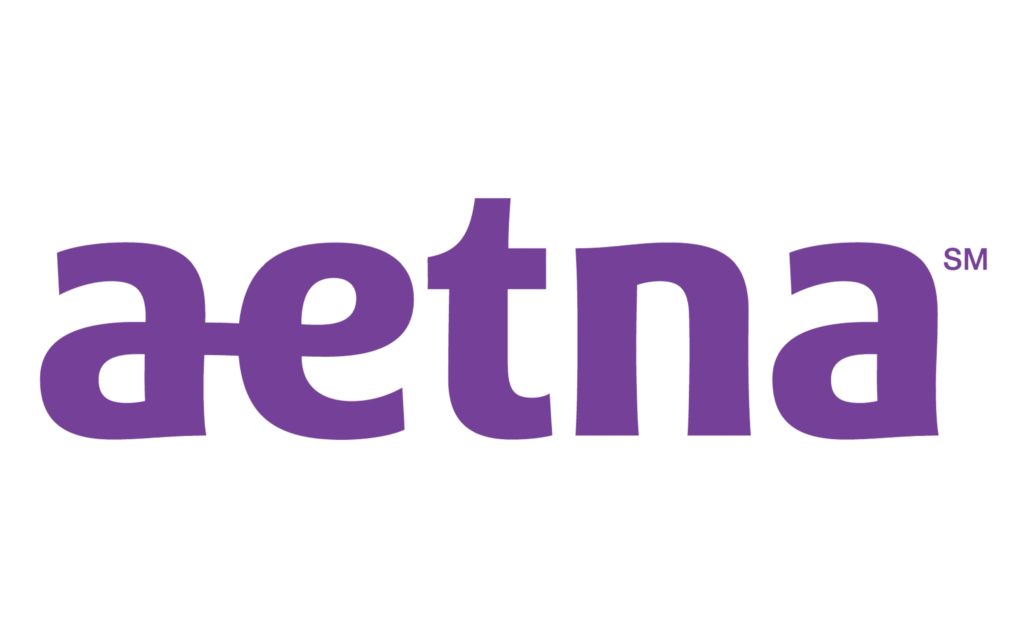Why Choose Carolina Recovery Solutions in Asheville, NC?
When seeking alcohol treatment, it’s essential to find a facility that offers comprehensive addiction treatment services, experienced and caring staff, and individualized treatment plans. Carolina Recovery Solutions in Asheville, NC excels in all these areas, making it an excellent choice for individuals on the path to recovery.
Comprehensive Addiction Treatment Services
Carolina Recovery Solutions is committed to providing comprehensive addiction treatment services (Carolina Recovery Solutions). They understand that addressing the complex nature of alcohol use disorder (AUD) requires a multifaceted approach. By offering a range of evidence-based therapies, counseling, and support programs, they ensure that individuals receive the comprehensive care they need for successful recovery.
Experienced and Caring Staff
The experienced and caring staff at Carolina Recovery Solutions play a significant role in supporting individuals on their recovery journey (Carolina Recovery Solutions). Their expertise and compassion create a safe and nurturing environment where individuals can feel supported and understood. The staff’s dedication to helping individuals recover from addiction contributes to the overall success of the treatment program.
Individualized Treatment Plans
At Carolina Recovery Solutions, individualized treatment plans are a cornerstone of their approach (Carolina Recovery Solutions). They recognize that each person’s journey to recovery is unique, and therefore, a one-size-fits-all approach is inadequate. By tailoring treatment plans to meet the specific needs and challenges of each individual, Carolina Recovery Solutions ensures that every person receives the personalized care necessary for lasting recovery.
Comprehensive addiction treatment services, experienced and caring staff, and individualized treatment plans are key factors to consider when choosing an alcohol treatment facility. Carolina Recovery Solutions in Asheville, NC excels in all these areas, providing individuals with the support, guidance, and resources they need to unlock a brighter future free from the grips of alcohol addiction.
Alcohol Treatment Options
When it comes to alcohol treatment, there are different options available to cater to the unique needs and circumstances of individuals seeking help. The three primary alcohol treatment options are alcohol detoxification, inpatient rehabilitation, and outpatient rehabilitation.
Alcohol Detoxification
Alcohol detoxification, often referred to as alcohol detox, is an essential first step in the treatment of alcohol abuse and dependence. This process helps individuals safely and comfortably manage withdrawal symptoms that may arise when they stop drinking. Detoxification is typically conducted under medical supervision to ensure the individual’s safety and well-being (Alcohol.org).
During alcohol detox, the body is given time to rid itself of alcohol and adjust to functioning without it. Medical professionals may administer medications to alleviate withdrawal symptoms and provide support throughout the process. Detoxification is crucial in preparing individuals for further treatment and reducing the risks associated with withdrawal.
Inpatient Rehabilitation
Inpatient rehabilitation, often known as residential rehab, is a comprehensive form of alcohol treatment that involves the individual residing within a treatment facility for a designated period. This type of treatment program provides a highly structured environment with 24/7 medical and emotional support.
Inpatient rehab programs offer a range of therapeutic interventions, including individual counseling, group therapy, and educational sessions. These programs provide individuals with a supportive community of peers and professionals, allowing them to focus solely on their recovery. The duration of inpatient rehabilitation can vary depending on the individual’s needs, ranging from a few weeks to several months (Alcohol Rehab Guide).
Outpatient Rehabilitation
Outpatient rehabilitation offers a more flexible treatment option for individuals who do not require 24/7 medical supervision or a residential setting. Outpatient programs allow individuals to receive alcohol treatment while living at home and continuing with their daily responsibilities.
Outpatient rehab typically involves scheduled therapy sessions and counseling, allowing individuals to attend treatment during the day and return home in the evenings. This option provides a supportive network and a structured treatment plan while offering the flexibility to maintain work, school, or family commitments. The duration and intensity of outpatient rehab can vary based on the individual’s needs and progress.
Choosing the right alcohol treatment option depends on various factors, such as the severity of the alcohol use disorder, the individual’s support system, and their personal preferences. It is essential to consult with addiction professionals to determine the most suitable treatment approach for each individual’s unique circumstances.
The Importance of Seeking Alcohol Treatment
Seeking alcohol treatment is crucial for individuals struggling with alcohol abuse or dependence. It is essential to address the rising rates of alcohol abuse, understand the dangers of alcohol and outdoor activities, and recognize the benefits of alcohol treatment.
Rising Rates of Alcohol Abuse
Alcohol abuse is a significant public health concern, with a substantial number of individuals affected by alcohol use disorder (AUD). In the United States alone, an estimated 14.5 million adults aged 18 and older had an AUD in 2019. Unfortunately, only about 7.9% of adults with AUD received treatment in the past year. These statistics highlight the need for increased awareness and access to alcohol treatment services.
Dangers of Alcohol and Outdoor Activities
During the summer months, combining alcohol with outdoor activities can be a dangerous mix. Alcohol impairs judgment, coordination, and reaction time, increasing the risk of accidents and injuries (Alcohol Rehab Guide). It is crucial to recognize the potential dangers associated with consuming alcohol while participating in outdoor recreational activities to ensure personal safety and the safety of others.
Benefits of Alcohol Treatment
Alcohol treatment offers a variety of benefits for individuals struggling with alcohol abuse or dependence. Here are some key advantages:
- Breaking the Cycle of Addiction: Alcohol treatment provides individuals with the opportunity to break free from the cycle of addiction by addressing the underlying causes of alcohol abuse and developing healthier coping mechanisms.
- Improved Physical and Mental Health: Seeking alcohol treatment can lead to improved physical and mental well-being. By abstaining from alcohol and adopting a healthier lifestyle, individuals can experience positive changes in their overall health.
- Supportive Environment: Alcohol treatment programs offer a supportive environment where individuals can connect with others who understand their struggles. This sense of community and understanding can be instrumental in the recovery process.
- Professional Guidance and Expertise: Alcohol treatment programs are staffed by experienced professionals who specialize in addiction treatment. These professionals provide guidance, support, and evidence-based therapies to help individuals overcome alcohol abuse and achieve long-term recovery.
- Individualized Treatment Plans: Alcohol treatment programs develop individualized treatment plans tailored to each person’s unique needs and circumstances. This personalized approach ensures that individuals receive the specific care and support necessary for their recovery journey.
By recognizing the rising rates of alcohol abuse, understanding the dangers associated with alcohol and outdoor activities, and acknowledging the benefits of alcohol treatment, individuals can take the necessary steps towards a brighter future free from the grasp of alcohol addiction. Seeking professional help and support is a crucial first step in the journey to recovery.
Evidence-Based Approaches to Alcohol Treatment
When it comes to alcohol treatment, there are several evidence-based approaches that have shown effectiveness in helping individuals overcome alcohol use disorder (AUD). These approaches include behavioral therapies, medications, and mutual-help groups.
Behavioral Therapies for Alcohol Use Disorder
Behavioral therapies play a crucial role in alcohol treatment. These therapies aim to address the psychological and behavioral aspects of AUD. Some common behavioral therapies used in alcohol treatment include:
- Cognitive-Behavioral Therapy (CBT): CBT helps individuals identify and change negative thoughts and behaviors associated with alcohol use. It focuses on developing coping strategies, managing triggers, and building healthier habits to support long-term recovery.
- Motivational Enhancement Therapy (MET): MET is designed to enhance an individual’s motivation to change their drinking behavior. It helps individuals explore their own motivations and values, and encourages them to make positive changes in their alcohol use.
- Contingency Management (CM): CM is a behavioral therapy that uses positive reinforcement to promote abstinence from alcohol. It involves rewarding individuals for achieving specific treatment goals, such as attending therapy sessions or passing alcohol screenings.
These behavioral therapies, either used individually or in combination, have been shown to be effective in treating AUD and helping individuals achieve and maintain sobriety (NIAAA).
Medications for Alcohol Dependence
Medications can be an integral part of alcohol treatment, particularly for individuals with alcohol dependence. Several medications have been approved for the treatment of AUD, including:
- Naltrexone: Naltrexone helps reduce alcohol cravings and can block the pleasurable effects of alcohol. It can be taken orally or through a monthly injection.
- Acamprosate: Acamprosate is thought to stabilize the brain’s chemical balance and reduce alcohol cravings. It is typically taken orally.
- Disulfiram: Disulfiram creates unpleasant physical reactions when alcohol is consumed, discouraging individuals from drinking.
- Topiramate: While not specifically approved for AUD, topiramate has shown promise in reducing heavy drinking and promoting abstinence in some individuals.
The choice of medication will depend on individual needs and should be determined in consultation with a healthcare professional. Medications can be used alone or in combination with behavioral therapies to enhance treatment outcomes.
Mutual-Help Groups in Alcohol Recovery
Mutual-help groups, such as Alcoholics Anonymous (AA), can be a valuable adjunct to professional treatment for AUD. These groups provide a supportive environment where individuals can connect with others who have experienced similar challenges and share their journey to recovery. Mutual-help groups offer a sense of community, encouragement, and ongoing support.
Participating in mutual-help groups can complement other treatment approaches, providing individuals with additional resources and strategies for maintaining sobriety. The principles and fellowship found in mutual-help groups can serve as a foundation for long-term recovery (NIAAA).
By combining evidence-based behavioral therapies, medications, and the support of mutual-help groups, individuals with AUD can access a comprehensive treatment approach that addresses both the physical and psychological aspects of alcohol dependence. It’s important to work with healthcare professionals to determine the most suitable treatment plan based on individual needs and preferences.
Choosing the Right Alcohol Treatment Program
When it comes to alcohol treatment, choosing the right program is essential for the recovery journey. Carolina Recovery Solutions in Asheville, NC offers a range of options to cater to individual needs and circumstances. Whether considering inpatient rehab, outpatient rehab, or intensive outpatient programs (IOPs), each option has its own considerations and benefits.
Considerations for Inpatient Rehab
Inpatient rehab programs provide a highly structured environment with 24/7 medical and emotional support. This type of program is ideal for individuals with severe alcohol addiction or those who require a more intensive level of care. Inpatient rehab allows individuals to focus solely on their recovery without the distractions and triggers of daily life.
One of the main advantages of inpatient rehab is the comprehensive and immersive treatment experience it offers. With a team of experienced professionals, individuals receive personalized care and support throughout their stay. The structured nature of inpatient rehab helps establish routines, develop coping skills, and address underlying issues contributing to alcohol addiction.
Benefits of Outpatient Rehab
Outpatient rehab programs, on the other hand, provide individuals with the flexibility to live at home while attending therapy sessions a few times per week. This option is suitable for those with a less severe addiction or individuals who have completed inpatient rehab and are transitioning to a lower level of care.
Outpatient rehab offers several benefits, including a more cost-effective approach compared to inpatient programs. Costs for outpatient rehab typically range from $1,000 to $10,000 for a 3-month program, making it a more affordable option for many individuals. Outpatient rehab also allows individuals to maintain their daily routines, such as work or school commitments, while still receiving necessary treatment and support.
Intensive Outpatient Programs (IOPs) as a Middle Ground
For individuals who require more intensive treatment than traditional outpatient rehab but do not need the round-the-clock care of inpatient rehab, intensive outpatient programs (IOPs) provide an excellent middle ground. IOPs offer a higher level of care and structure than standard outpatient programs while allowing individuals to live at home.
Intensive outpatient programs typically involve more frequent therapy sessions and comprehensive support services. This allows individuals to receive the necessary treatment while still having the flexibility to fulfill their responsibilities and maintain their support systems.
By understanding the considerations and benefits of each alcohol treatment option, individuals can make an informed decision based on their unique needs and circumstances. Whether choosing inpatient rehab, outpatient rehab, or an intensive outpatient program, seeking professional guidance and support from Carolina Recovery Solutions in Asheville, NC can provide the necessary tools and resources for a successful recovery journey.
Overcoming Barriers to Alcohol Treatment
Seeking treatment for alcohol use disorder (AUD) can be challenging for individuals facing various barriers. Understanding these barriers and the effective treatment approaches available is crucial for overcoming obstacles and accessing the help needed. Additionally, individuals in Canada seeking addiction treatment services can find the necessary support through provincial or territorial helplines. Let’s explore these topics in more detail.
Low Treatment Rates for Alcohol Use Disorder
Despite the prevalence of alcohol use disorder, treatment rates remain low. In 2019, an estimated 14.5 million adults aged 18 and older had AUD in the United States, but only about 7.9% of them received treatment in the past year. This discrepancy highlights the need to address barriers preventing individuals from seeking help.
Effective Treatment Approaches
Fortunately, there are various evidence-based approaches available to effectively treat alcohol use disorder. These approaches include:
- Behavioral Therapies: Behavioral therapies, such as cognitive-behavioral therapy, motivational enhancement therapy, and 12-step facilitation therapy, have shown significant improvements in reducing alcohol consumption and promoting recovery (NCBI). These therapies focus on changing harmful thought patterns, developing coping skills, and providing support during the recovery process.
- Medications: Medications play a vital role in alcohol dependence treatment. Approved medications like naltrexone, acamprosate, and disulfiram have demonstrated efficacy in reducing alcohol cravings and preventing relapse. Ongoing research is exploring the potential of other medications, such as topiramate and selective serotonin reuptake inhibitors, in alcoholism treatment.
- Mutual-Help Groups: Mutual-help groups, like Alcoholics Anonymous (AA), offer valuable support and a community-based system that is responsive to changes in relapse risk. These groups provide understanding, encouragement, and guidance from individuals who have experienced similar struggles.
Accessing Help in Canada
Individuals seeking addiction treatment services in Canada can rely on provincial or territorial helplines for assistance. These helplines provide information on available treatment services and can guide individuals toward the appropriate resources. Contacting the helpline specific to your province or territory is an important first step in accessing the help you need.
By addressing the low treatment rates, utilizing effective treatment approaches, and accessing available resources, individuals can overcome barriers to alcohol treatment. It’s essential to raise awareness about the importance of seeking help and to provide support for those struggling with alcohol use disorder. Remember, recovery is possible, and there is help available for those seeking a brighter future free from the grips of alcohol addiction.
Understanding Alcohol Use Disorder
Alcohol use disorder (AUD) is a prevalent issue that affects millions of individuals worldwide. Understanding the prevalence of alcohol abuse and dependence, treatment outcomes, and available medications is crucial in addressing this serious condition.
Prevalence of Alcohol Abuse and Dependence
In the United States alone, about 15.1 million adults aged 18 and older have an alcohol use disorder (AUD). The prevalence of alcohol abuse and dependence in the country is estimated to be 4.65% and 3.81%, respectively. Shockingly, only 14.6% of individuals with a lifetime history of alcohol abuse or dependence have received treatment, and among those who received treatment, only 25.5% reported ever receiving treatment (NCBI). These statistics highlight the need for increased awareness and access to effective alcohol treatment programs.
Treatment Outcomes and Success Rates
Treatment for alcohol use disorder can be highly effective in helping individuals overcome their addiction and achieve long-term recovery. However, it’s important to note that treatment outcomes and success rates can vary depending on various factors such as the severity of the disorder, individual motivation, and the quality of the treatment program.
While success rates can be influenced by several factors, it is crucial to seek professional help and engage in evidence-based treatment approaches. By doing so, individuals can significantly improve their chances of achieving and maintaining sobriety.
Medications Approved for Alcohol Dependence
In the treatment of alcohol dependence, there are several medications that have been approved by regulatory authorities to assist individuals in their recovery journey. These medications work in different ways to help reduce cravings, manage withdrawal symptoms, and maintain sobriety.
Some of the medications approved for alcohol dependence include:
| Medication | Purpose |
|---|---|
| Disulfiram | Creates an unpleasant reaction if alcohol is consumed, discouraging its use |
| Naltrexone | Blocks the effects of alcohol and reduces cravings |
| Acamprosate | Helps to restore the chemical balance in the brain, reducing post-withdrawal cravings |
These medications are typically used as part of a comprehensive treatment plan, which may also include counseling, therapy, and support groups. It’s important to consult with a healthcare professional to determine the most appropriate medication and treatment approach for each individual’s unique needs.
Understanding the prevalence of alcohol abuse and dependence, treatment outcomes, and available medications is vital in addressing alcohol use disorder effectively. By seeking professional help and engaging in evidence-based treatment programs, individuals can take significant steps towards a healthier and sober future.







